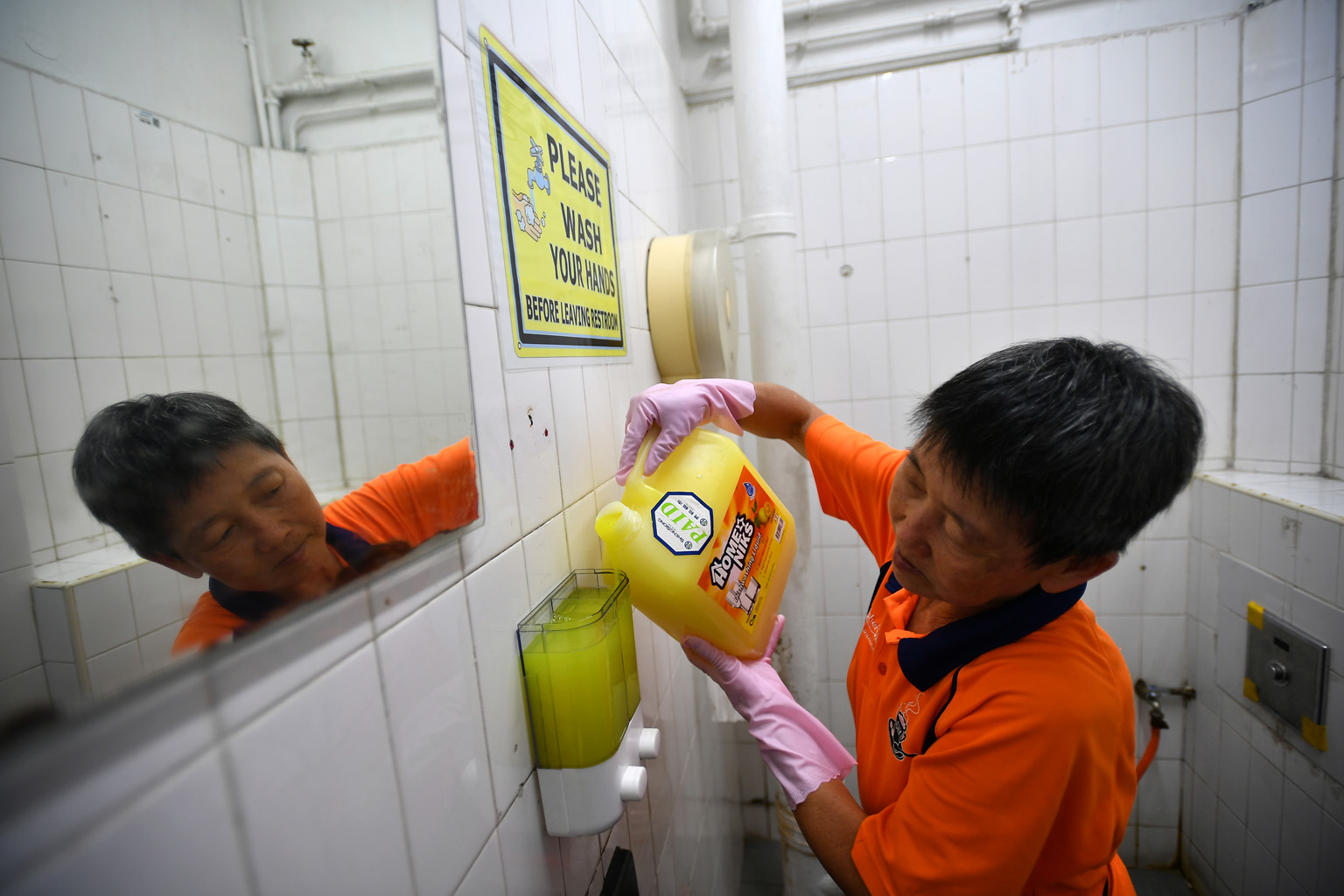Covid-19 patients' stool may have live virus: China study
But experts say sewage systems in S'pore have barriers against virus spread
Sign up now: Get ST's newsletters delivered to your inbox

The design of sanitary systems in Singapore ensures that whenever the washbasin is used or the toilet is flushed, water seals in the sanitary pipes are replenished, preventing foul air from escaping from the pipes.
ST PHOTO: LIM YAOHUI
A new study by Chinese scientists has found that Covid-19 patients' stool may contain infectious traces of the virus, raising the possibility of a faecal-oral transmission route.
Published as an early release on the website of the United States' Centres for Disease Control and Prevention, the study raises questions on whether the disease could spread through sanitary systems.
While initial investigations show the virus may be present in the stool of some patients, the World Health Organisation noted there have not been reports of patients getting the disease through such a transmission route.
Virologist Stathis Giotis of the Department of Infectious Disease at Imperial College London told The Straits Times that more research is needed to determine if the virus can spread via sanitary systems.
Pointing to at least two earlier studies that had also reported the live virus in faeces, he said all three published studies suggest relatively low levels of infective virus.
Viral genetic material has been detected in patients' stool, but this may not necessarily be infectious.
To show the presence of a live virus, scientists have to show that the virus is able to replicate and complete its life cycle by producing new particles that are in turn able to infect new cells, Dr Giotis said.
While the authors of the latest study had shown that the virus was alive and infectious in cell culture, the presence of infectious virus in stool is not proof that faecal-aerosol transmission can take place, he said.
Dr Giotis also pointed out that the researchers had attempted to isolate the virus from the stool samples of three Covid-19 patients, and only managed to do so for two.
"This is an interesting study, we certainly cannot dismiss the practical implications of the findings, but more and larger-scale studies are needed to draw conclusions about the transmission of the virus via sanitary systems," said Dr Giotis.
In 2003, during the Sars (severe acute respiratory syndrome) outbreak, the faulty sewage system of a residential building in Hong Kong was found to be involved in the vertical spread of the virus.
But sewage systems in Singapore have multiple barriers to prevent this, said national water agency PUB. Water seals in the U-shaped section of the toilet bowl and floor trap, for example, prevent foul air from escaping out of the sanitary pipes into people's homes, said Mr Maurice Neo, PUB's director of the water reclamation network.
The foul air in the pipes may be laden with droplets containing harmful bacteria or viruses.
Mr Neo said the water seals are constantly replenished through the usage of the washbasin or when the toilet is flushed.
CNN had reported that during the Sars outbreak, the water seals in some of the Hong Kong private apartments' toilets had been dry for an extended period, allowing virus-laden droplets to collect from the system's soil pipe.
Mr Neo said that at that time, Hong Kong's sanitary system featured floor traps that were not connected to washbasins, which caused the water seals to dry up.
"Post-Sars, the Hong Kong sanitary system was modified to mirror Singapore's system, where the washbasin, which is used most frequently, discharges into the floor trap," he told The Straits Times.
Moreover, Singapore's sanitary pipes are air pressure-tested to ensure no leakage in the system, he added. Gases and liquids tend to flow from an area of high pressure to an area of low pressure.
Pressure fluctuations within the sanitary system may result in the loss of the water seal - a drop in pressure siphons off the seal, while high pressure could lead to used water being expelled from the toilet.
To prevent such scenarios, sanitation systems in Singapore have a network of ventilation pipes to limit pressure fluctuations.
Mr Neo said Singapore's water is safe to drink, and PUB conducts regular monitoring of drinking water quality right up to the customers' taps.
Professor Shane Snyder, executive director of the Nanyang Environment and Water Research Institute at Nanyang Technological University, said virus infection via Singapore's drinking water system is "exceedingly improbable" due to the nation's multi-barrier approach to disinfection.
Singapore also has numerous barriers that help to eliminate the probability of viral spread through the sewer system. For example, plumbers must be licensed, which ensures systems meet regulatory specifications, including airtight seals and water traps, he said.
"Singapore also uses advanced water treatment technologies which can remove and destroy viruses and other pathogens. Thus, contracting disease through our city's sewer systems is extremely unlikely," said Prof Snyder.


